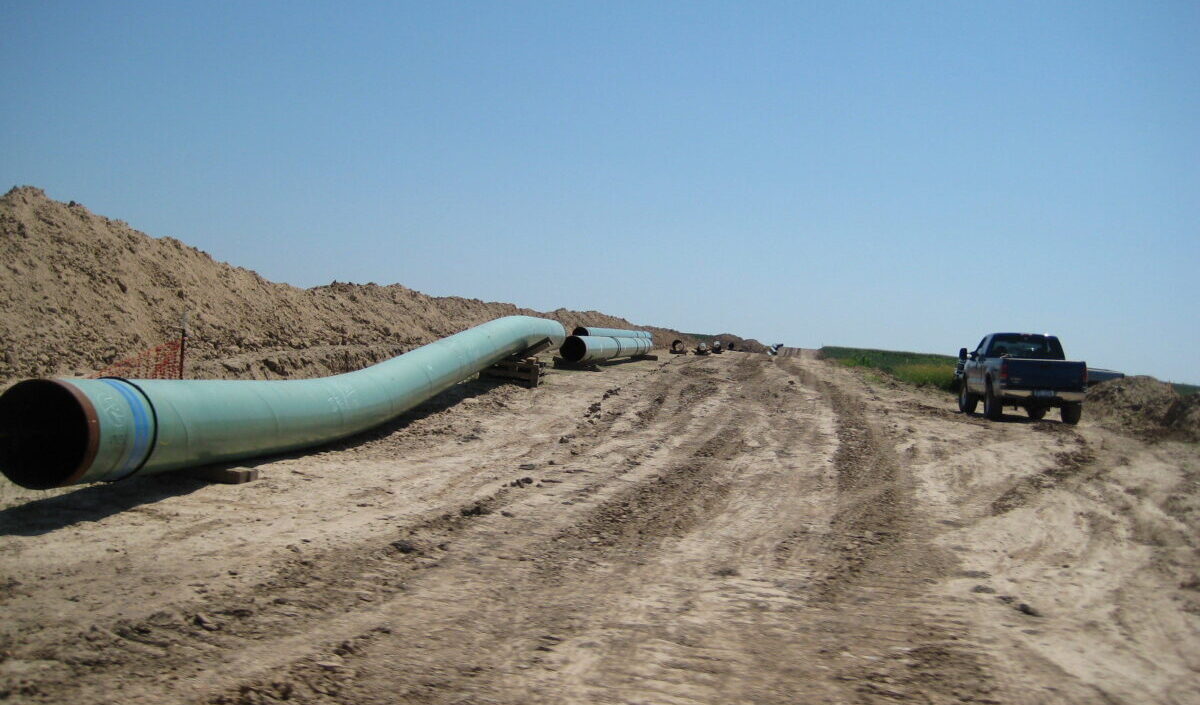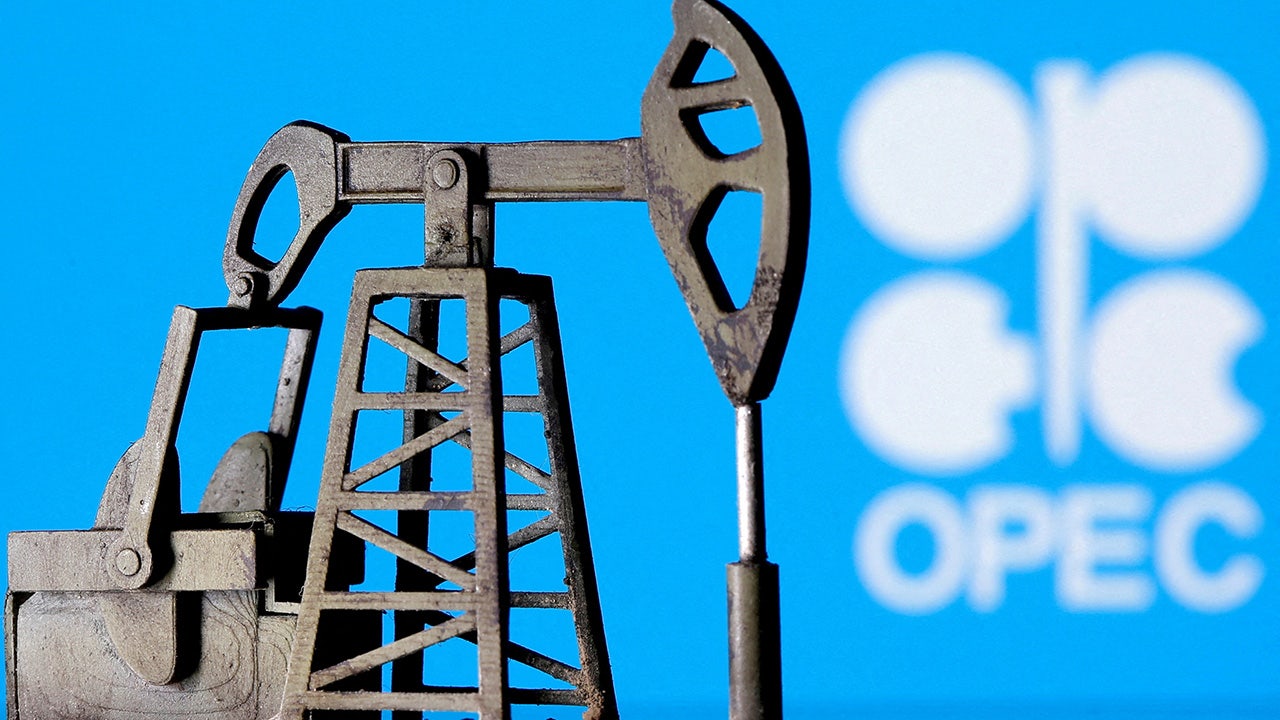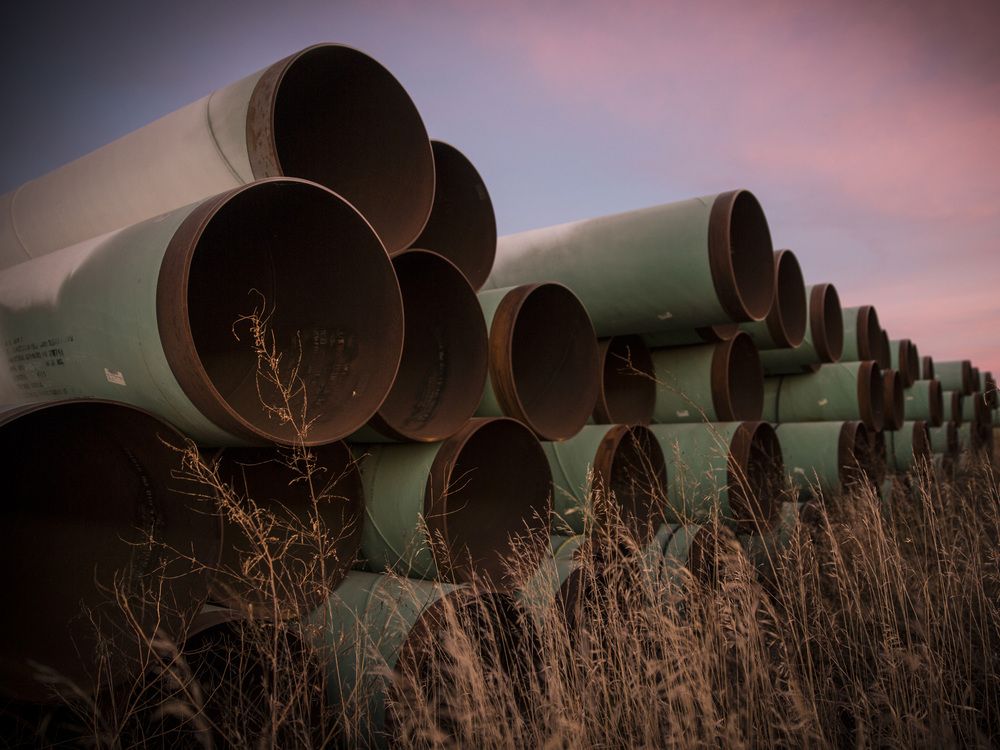Environmentalists opposed the pipeline in part because of the oil it would carry — oil sands crude from Alberta. It requires more processing than most oil, so
producing it emits more greenhouse gases.'
Who shut down Keystone?
TransCanada shut down a portion of the Keystone XL Pipeline after they "reported a spill of about
187 gallons of crude oil" near the Freeman pump station in Hutchinson County, South Dakota.
Building the Keystone pipeline and opening up the Tar Sands will
negatively impact national and local economies: Burning the recoverable tar sands oil will increase the earth's temperature by a minimum of 2 degree Celsius, which NYU Law School's Environmental Law Center estimates could
permanently cut the US GDP by 2.5 ...
It won't create jobs and will jeopardize our drinking water. But that's just the tip of the iceberg.

www.buzzworthy.com
10 Reasons Why The Keystone XL Pipeline Is A Terrible Idea
by Cameron Finch
SHARE
TWEET
https://www.buzzworthy.com/10-reasons-why-the-keystone-xl-pipeline-is-a-terrible-idea/#comments
https://www.buzzworthy.com/10-reasons-why-the-keystone-xl-pipeline-is-a-terrible-idea/#comments
Last month, the TransCanada Co. got the
nod of approval from the Nebraska Public Service Commission to build the controversial $8 billion, 875-mile Keystone XL pipeline, which when completed, will carry up to 830,000 barrels of crude oil to refineries along the Texas Gulf Coast. Back in 2015, President Obama rejected the pipeline’s permit after finding the project’s significant risks outweighed its very limited benefits. But in March 2017, President Trump signed a permit allowing TransCanada to begin the pipeline construction.
The risks of the Keystone XL to our waters, land and climate have not changed though. Below is a list of 10 reasons why the pipeline is a terrible idea—a project which will only bring more damage to our country and people, and a plan which will never live up to the good touted by the government.
1. It won’t create more jobs.
Industry predictions in 2010 claimed that the project would be of utmost positivity to the economy, by “putting 20,000 US workers to work and spending $7 billion, thus stimulating the US economy.” However, the TransCanada company told the U.S. State Department the pipeline would only create 50 permanent jobs after it is built. While the building of the pipeline itself would generate more jobs (almost 2,000 jobs over two years), these are temporary and still quite small-scale for a national jobs count. Conversely, the Department of Energy reports that in the last year the economy has created 230,000 new clean energy and efficiency jobs, accounting for 10% of the nation’s job growth.
2. The pipeline will run dangerously close to drinking water.
In the states of Montana, South Dakota, and Nebraska alone, the pipeline would cross 1,073 rivers, lakes and streams, not to mention tens of thousands of acres of wetlands. In many cases, it will run within a mile of more than 3,000 wells that provide drinking and irrigation water in those states.
3. Bad Water. Bad Food.
The real jobs in jeopardy here are those on the ranches and farms —110,000 of them —which produce $41.6 billion worth of food in 2012 in the breadbasket of America (Montana, South Dakota, and Nebraska).
On top of potential damage to crops, farmers and landowners alike from Texas to Montana have been threatened with land repossession by
eminent domain—the law that says a private company can come in and take part of your property if it can prove to the government that doing so will benefit the general public. Julia Crawford, a Texan landowner,
says: “As a landowner, property rights are key to my livelihood and family legacy. A foreign corporation pumping foreign oil simply does not qualify as a common carrier under Texas law. TransCanada does not get to write their own rules. I look forward to the Supreme Court hearing our case and our plea to protect the fundamental rights of property owners.”
Take a step back and let’s look at the grand picture: a foreign company with no ties to the U.S. is demanding land from U.S. landowners to carry oil that will, most likely, end up exported worldwide. How is this “benefitting the general public?”
It won't create jobs and will jeopardize our drinking water. But that's just the tip of the iceberg.

www.buzzworthy.com
4. Gas prices will rise.
According to an
analysis by the Cornell University School of Industrial and Labor Relations, “Keystone XL will divert Tar Sands oil now supplying Midwest refineries, so it can be sold at higher prices to the Gulf Coast and export markets. As a result,
consumers in the Midwest could be paying 10 to 20 cents more per gallon for gasoline and diesel fuel. These additional costs (estimated to total $2 to $4 billion) will suppress other spending and will therefore cost jobs.”
Unfortunately,
more oil doesn’t necessary translate to lower gas prices. Because oil is a global commodity, its price is impacted by its supply and demand in other countries.

thefederalist.com







